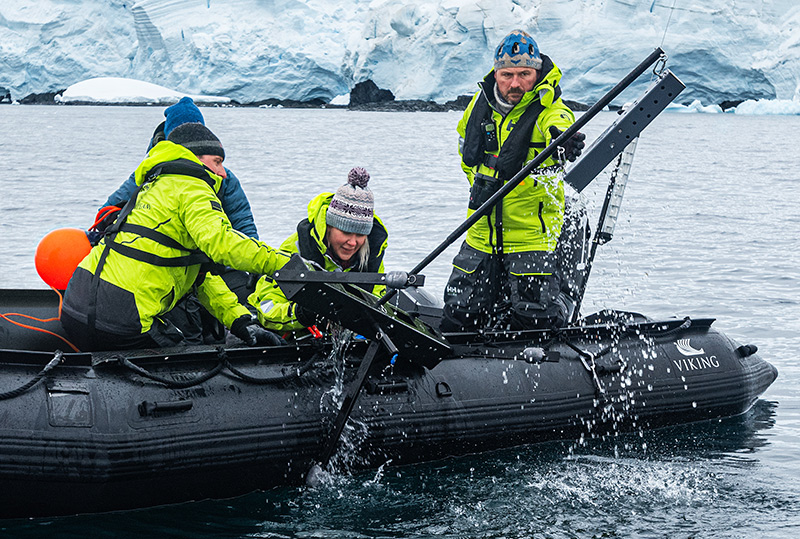Viking has advanced scientific research onboard its expedition fleet with the addition of real-time environmental DNA (eDNA) sequencing of phytoplankton, according to a press release.
This makes Viking the first travel company to support real-time environmental genetic sequencing capabilities onboard its ships.
With support from UC San Diego’s Scripps Institution of Oceanography and J. Craig Venter Institute (JCVI), the PCR lab on board the Viking Octantis has been converted into a scientific environment where visiting scientists contributing to the Genomics at Sea Program (GASP) monitor the environmental impact on phytoplankton without the need to transport samples to a shoreside facility.
The onboard advancements and participation in GASP are an extension of Viking’s collaboration with Fjord Phyto, a NASA-funded program that enables guests to participate in research and public education by sampling polar phytoplankton for genetic population analyses.
“Ever since we created Viking Expeditions, it has always been our intention to help facilitate meaningful scientific work,” said Karine Hagen, executive vice president of Viking. “As we continue our third year of operating expeditions, we are pleased that we have been able to achieve our goal alongside esteemed scientific partners. By repurposing a technology that kept our guests safe in the height of the pandemic to gain valuable insights into our environment, we are providing a critical research opportunity for all of our future expedition voyages.”
The conversion of the PCR lab onboard the Viking Octantis took place earlier this year while the ship was in Antarctica. The Viking Polaris will also be converted to support research efforts before both ships return to Antarctica later this year.
“We are excited about the significant scientific potential represented by this collaboration,” said Andrew Allen, a professor of marine biology at Scripps and JCVI. “Our ability to understand how ocean plankton communities respond to shifting conditions, resulting from both natural variation and human-influenced perturbation, is limited by sampling and observation. Through this work we will obtain a new and more comprehensive view of the genetic diversity of plankton, which will advance our ability to assess the biological response of the ocean to climate change and other stressors.”
Photo: Scientists retrieving samples in Antarctica




